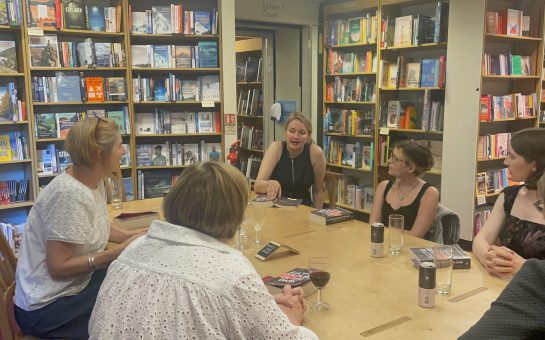Women of the World festival returned to Southbank Centre in London with award-winning novelist and feminist, Chimamanda Ngozi Adichie and the award-winning journalist and feminist author Reni Eddo-Lodge taking the stage in conversation on the 10 March.
The sold out event was a reflection of WOW Festival’s global movement and their diverse yet powerful reach, as founder Jude Kelly noted that the purpose of WOW is ‘to connect the stories of girls and women all around the world.’
WOW Festival took place between March 7-11 bringing together leading voices across culture, business, politics, art and activism to celebrate womankind through talks, debates, music, comedy, poetry and networking.
The five-day festival aims to celebrate the achievements of girls and women but to also focus on the potential barriers that can stop them from achieving their full potential.
The atmosphere in the auditorium was electric as the crowd buzzed with energy as they eagerly awaited the arrival of the two influential speakers.
The heightened voices in the audience and the growing anticipation for the talk with the thought-provoking authors was certainly contagious.
As the pair entered the stage, the entire auditorium were on their feet in unison applauding and cheering — as Reni commented, ‘a standing ovation before we said a word.’
It was clear to see from the reaction of the audience the importance of the collaboration between the two women, who for the first time were sitting on stage together to discuss race, gender, feminism and social media.
The interaction between the two women naturally flowed as Reni broached Chimamanda on her experiences as a Nigerian woman who moved to the United States at the age of 19 to study.
‘Half of a Yellow Sun’ author Chimamanda recalled her experiences living in America, explaining why she did not recognise her race until moving to the United States.
Chimamanda believes that in the United States ‘identity is forced on you,’ which she put down to their history where ‘people came from all over the place,’ making it important to have an identity.
Her experience in America was a complete contrast to her privileged upbringing in Nigeria, but Chimamanda made it a point to learn about the black American experience using her blog Ifemelu, as a space to express the things that she observed while living in the United States.
As a fiction novelist, she expressed her particular frustration in interviews that would turn into a discussion about race and gender.
Although Chimamanda proclaimed herself a ‘political person’ who cares about the issues of race and feminism she is also ‘interested in love, human emotion and how we are all flawed as people.’
There were elements of humour throughout their discussion, most notably when non-fiction writer Reni moved the conversation onto Chimamanda’s thought’s of social media.
Reni the author of ‘Why I’m No Longer Talking To White People About Race,’ recalls that people will look for her on social media to express ‘their opinions and feelings’ about a book that they have not read which was met with a lot of laughter from the audience. She described social media as a platform for ‘people to shout out at one another.’
However, Chimamanda revealed that she did not use social media platforms, acknowledging it as a useful tool but where an ‘undertone of ugliness’ can surface.
The pair discussed various other topics that was encompassing of the central theme of WOW festival, from defining feminism, to the complexities and affects of colonialism to the experience of transgender women.
Chimamanda closed the conversation with the advice that she would give her younger self, that was to spend less time thinking about how others feel about you but to ‘do what feels true and somebody will like you for who you are.’
This was a poignant statement, as WOW festival aims to empower the women and men all across the world and is certainly a growing influence in the work towards achieving gender equality.
Image used with permission of Ellie Kurrtz




